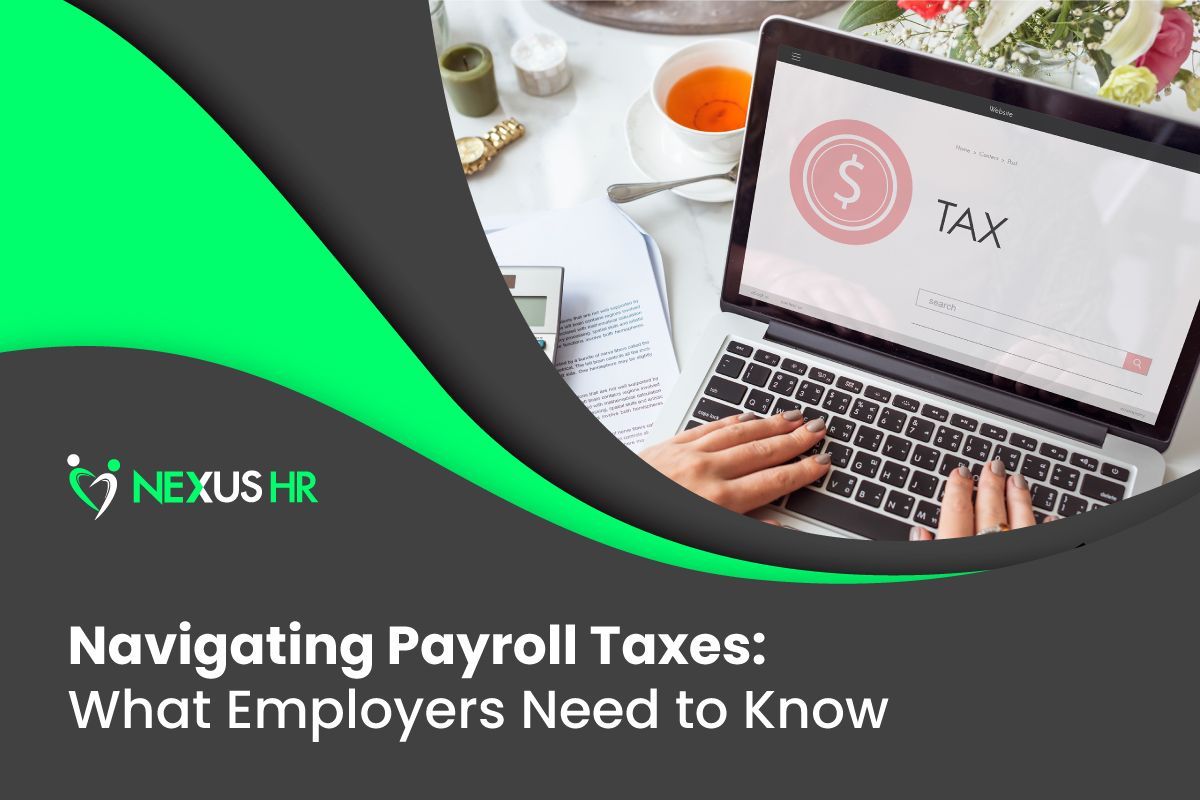Get in touch
877-922-5867
Info@Nexushr.com
877-922-5867
The Evolution of HR: A Look Into the Past, Present & Future
Human resources (HR) plays a crucial role in today’s workplace culture and environment, directly impacting business growth and success. That’s why it’s hard to believe there was a time when it didn’t exist.
From its modest beginnings as a mere administrative function to its present-day role as a cornerstone of organizational strategy, the history of HR is a captivating narrative of adaptation, innovation, and responsiveness to societal changes.
So, how did HR start? How has HR changed over the years? And how is HR evolving now?
The History of HR in the United States

People have always been crucial to the success of any organization, but it wasn’t until the late 18th century that this perspective gained some form of traction.
Only during the Industrial Revolution—when the machines and technology of the time required human labor to operate—did the concept of employee management, appreciation, and engagement begin to enter conversations.
Early 1900s: Employment Clerks and Personnel Departments
According to the Society for Human Resource Management (SHRM), the emergence of employment clerks in the early 20th century planted the first seeds of structured HR. Employee clerks were responsible for hiring employees to do factory work.
In 1915, only
5% of large U.S. companies had personnel departments.
1920s: The Human Relations Movement
The 1920s marked a shift from focusing on employees’ efficiency to recognizing the importance of their psychological well-being and satisfaction. The human relations movement, founded by George Elton Mayo, acknowledged that social and psychological factors could better explain employee productivity and output.
With the term
personnel administration widely accepted,
more than a third of large U.S. companies had personnel departments by 1929.
1940s: The Emergence of HR
During the 1940s, U.S. employers needed specialized staff and more structured HR practices for workforce planning, recruitment, training, labor relations, and government regulation compliance. This need led to the formalization of HR functions within organizations.
In 1948, the
American Society for Personnel Administration (ASPA) was born. Its founding members established committees for budget, membership, conferences, and publications and introduced bylaws and a code of ethics.
In 1954, Peter Drucker
published his bestselling book
The Practice of Management
and introduced the term
human resources to the public for the first time.
1960s: The Civil Rights Movement
Prompted by the civil rights movement of the 1960s, the American people paid greater attention to anti-discrimination and equal employment opportunity measures. The Civil Rights Act of 1964 prohibited workplace discrimination based on race, color, religion, sex, or national origin and established the Equal Employment Opportunity Commission to enforce this law.
Read More:
Do You Know Your Employees’ Rights?
1980s: Structure and Technology
During the 1970s and ’80s, the world of employment saw a more structured legal framework and regulatory changes. It also witnessed the establishment of various laws affecting HR practices, such as the Occupational Safety and Health Act (OSHA), the Worker Adjustment and Retraining Notification Act (WARN), and the Americans with Disabilities Act (ADA).
HR-specific technology had also begun entering the market.
PeopleSoft, the first completely HR-centered client-server system for the enterprise market, was released in 1987.
1990s–2000s: Strategic Human Resource Management
When the 1990s rolled in, organizations recognized that effective human resource management was crucial for achieving business goals. Business leaders began taking a more strategic approach to HR and involved their HR staff in strategic planning, talent management, and organizational development.
In the late 1990s, HR vendors started introducing
cloud-hosted HR services to make the technology more accessible to smaller organizations with limited budgets. Instead of investing in client-server networks, expensive hardware, and professional installations, companies could use online accounts on web-based portals. Mobile applications also became more common.
HR at Present: Emerging Trends and Changes

The profound evolution HR underwent in the past century is a testament to the dynamic nature of the field. From being a primarily administrative function to becoming a strategic partner in driving organizational success, HR has undergone a remarkable metamorphosis—and it’s not stopping anytime soon.
The following trends are evidence that the evolution of HR continues and the history of HR is still being written:
Employee Well-Being
Recent years have seen a growing emphasis on employee experience, engagement, well-being, mental health, and company culture within HR practices. Companies strive to create inclusive and supportive work environments that value employee contributions.
Xero’s Chief People Officer
Nicole Reid advises organizations to ensure their employees aren’t getting too exhausted and burning out. “Have conversations so you know how your team is feeling as well as what they’re doing,” Reid added.
Read More:
How to Support Your Employees' Mental Health
Work Setup Flexibility
The concept of work flexibility has gained significant traction in recent years due to various factors, including technological advancements, evolving job market expectations, and employee experiences during the COVID-19 pandemic.
Many organizations are actively exploring ways to incorporate flexible work options into their HR strategies to meet their workforce’s needs and remain competitive in the current job market. Here are a few examples of flexible work arrangement options:
- Compressed Workweeks
- Reduced Hours or Part-Time Work
- Quiet Hiring
- Remote Work
- Hybrid Work
Read More:
In-Office, Remote, or Hybrid Work: Which One is Best?
AI and Automation
Artificial intelligence (AI) and process automation technologies have transformed how HR professionals manage various aspects of the employee lifecycle and streamline administrative tasks.
With the speed at which today’s innovations and technology are moving, organizations of every size can find AI and automation options to meet their business needs and budgets. HR companies like Nexus HR leverage cutting-edge technology to improve efficiency and accuracy in talent acquisition, candidate screening,
employee onboarding, performance management,
payroll processing, workforce planning, and more.
Read More:
How to Prepare Your Team for Generative AI in the Workplace
Diversity, Equity, and Inclusion (DEI)
DEI focuses on creating work environments that value and leverage every employee’s unique perspectives, backgrounds, and experiences. Its goal is to create a workplace where all members feel included, connected, and fairly treated.
With
56% of adults in the U.S. saying focusing on DEI at work is a good thing, HR professionals are committed to driving and sustaining these initiatives. When implemented effectively, DEI efforts can help organizations
attract top talent,
retain employees, and
experience better business outcomes.
Read More:
What is DEI in the Workplace?
Nexus HR: The Future of Human Resource Management

As your company stands at the crossroads of technological innovation and the constantly shifting workforce landscape, you’ll need a highly experienced, fully equipped professional partner to help you navigate the breakthroughs and changes in HR. You’ll need the future of human resource management: Nexus HR.
As an established HR solutions provider, Nexus HR can supplement and support your internal HR department. Whether you need help with benefits administration, forms processing, employee onboarding,
payroll management, or bookkeeping, Nexus HR is ready to fill in the gaps.
If you don’t have your own HR team, we can help, too! With its global team of experienced HR specialists and an impressive arsenal of HR technologies, Nexus HR can be your full-service,
remote HR department for a fraction of the cost.











